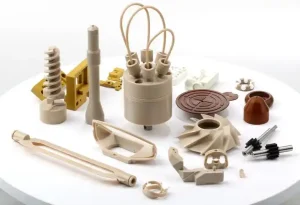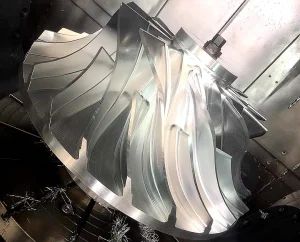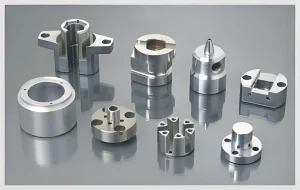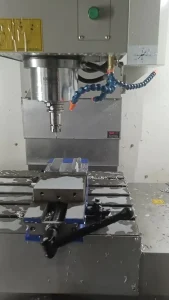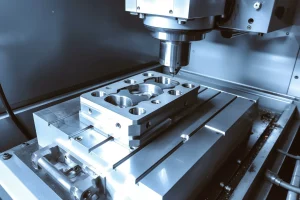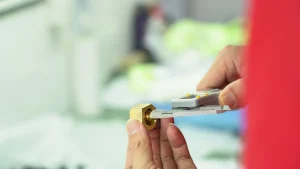In the ever – evolving landscape of aerospace manufacturing, precision and efficiency are the cornerstones of success. Among the various advanced manufacturing technologies, five – axis linkage machining has emerged as a game – changer, especially when it comes to the production of aerospace parts.
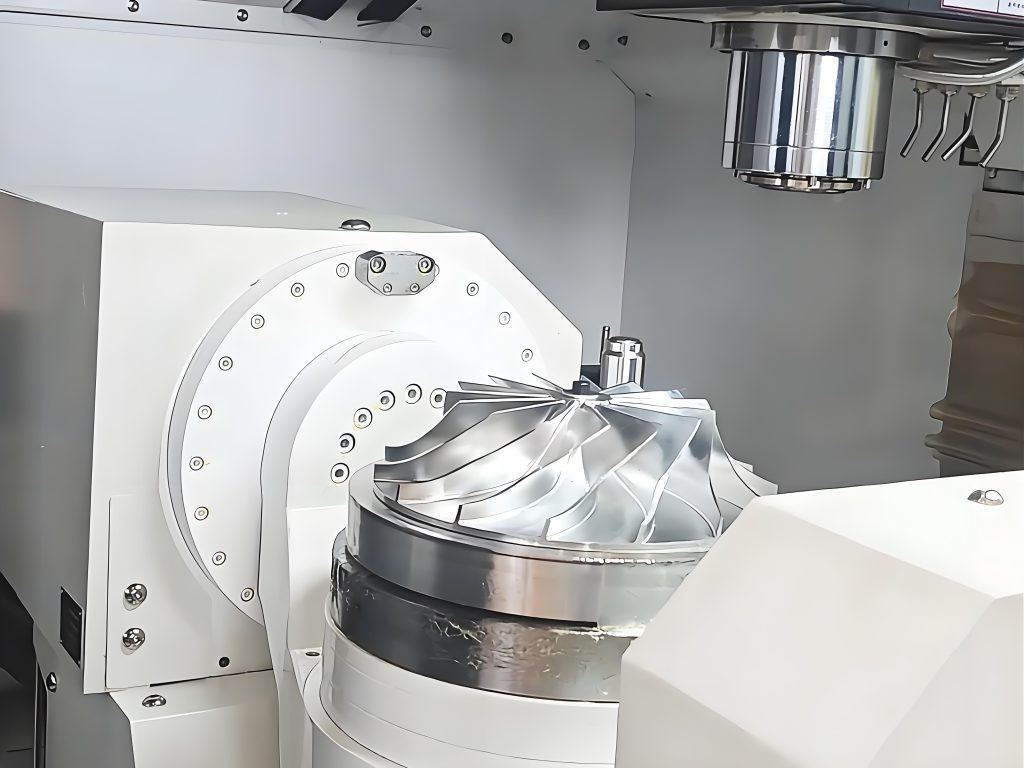
The Basics of Five – Axis Linkage Machining
Five – axis linkage machining refers to a machining process in which a workpiece can be processed simultaneously on five different axes: three linear axes (X, Y, and Z) and two rotational axes (usually A and B or A and C). This multi – axis movement allows the cutting tool to approach the workpiece from any angle, providing an unprecedented level of flexibility and precision.
Compared to traditional three – axis machining, five – axis machining offers several distinct advantages. In three – axis machining, the cutting tool can only move in the X, Y, and Z directions, which limits the complexity of the shapes that can be produced. For example, when manufacturing a complex aerospace component with curved surfaces and intricate geometries, three – axis machining may require multiple set – ups and additional operations, increasing the risk of errors and production time. In contrast, five – axis linkage machining can complete the processing of complex parts in one – step, reducing the number of set – ups and improving the overall accuracy and surface finish of the parts.
Applications in Aerospace Parts Manufacturing
The aerospace industry has some of the most stringent requirements for component quality and precision. Five – axis linkage machining has found wide applications in manufacturing various aerospace parts.
Turbine Blades
Turbine blades are critical components in aircraft engines. They need to withstand extremely high temperatures, pressures, and rotational speeds. The complex aerodynamic shapes of turbine blades demand high – precision machining. Five – axis machining enables the production of turbine blades with accurate profiles and smooth surfaces. By using five – axis machines, manufacturers can achieve the tight tolerances required for these blades, which is crucial for improving engine efficiency and reducing fuel consumption. For instance, the curved and twisted shapes of modern turbine blades can be accurately machined in a single operation, eliminating the need for post – processing and ensuring consistent quality across batches.
Structural Components
Aerospace structural components, such as wing spars and fuselage frames, also benefit greatly from five – axis machining. These components often have complex shapes and require the integration of multiple features. Five – axis machining allows for the creation of complex internal structures, such as light – weight honeycomb patterns within the components. This not only reduces the weight of the parts but also maintains their structural integrity. With the ability to machine these components in one setup, five – axis machining can significantly improve production efficiency and reduce the cost associated with multiple machining operations.
The Role of rapidefficient in the CNC Machining Market
In the highly competitive CNC machining market, rapidefficient has carved out a unique niche. rapidefficient is a leading provider of advanced CNC machining solutions, with a particular focus on five – axis linkage machining for aerospace parts.
One of the key values that rapidefficient brings to the table is its high – speed machining capabilities. With state – of – the – art equipment and advanced control systems, rapidefficient can significantly reduce machining cycle times. In the aerospace industry, where time is often of the essence, this high – speed machining can translate into faster production schedules and quicker delivery times. For example, when producing a batch of aerospace components, rapidefficient’s high – speed five – axis machines can complete the machining process in a fraction of the time compared to some of its competitors, enabling aerospace manufacturers to bring their products to market more rapidly.
Moreover, rapidefficient emphasizes precision and quality control. The company invests heavily in quality inspection equipment and highly trained technicians. Every aerospace part produced by rapidefficient undergoes strict quality checks at multiple stages of the production process. This ensures that the final products meet or exceed the stringent quality standards of the aerospace industry. By maintaining such high – quality standards, rapidefficient helps aerospace manufacturers avoid costly rework and recalls, which can have a significant impact on their bottom line.
rapidefficient also offers excellent customization services. Given the diverse and unique requirements of aerospace parts, rapidefficient’s engineering team can work closely with customers to develop tailored machining solutions. Whether it’s a new design concept or a modification to an existing part, rapidefficient has the expertise and resources to bring the customer’s vision to life.
Future Trends in Five – Axis Linkage Machining for Aerospace
As technology continues to advance, the future of five – axis linkage machining in the aerospace industry looks promising. One of the emerging trends is the integration of artificial intelligence (AI) and machine learning (ML) into machining processes. AI and ML algorithms can analyze real – time machining data, such as tool wear, cutting forces, and temperature, to optimize machining parameters automatically. This can further improve the efficiency and precision of five – axis machining, while also extending the lifespan of cutting tools.
Another trend is the development of hybrid machining processes. Combining five – axis machining with other manufacturing techniques, such as additive manufacturing (3D printing), can create new possibilities for aerospace part production. For example, additive manufacturing can be used to build complex geometries, and then five – axis machining can be employed to finish the parts to the required tolerances. This hybrid approach can reduce material waste and enable the production of more complex and innovative aerospace components.
In conclusion, five – axis linkage machining has become an indispensable technology in the aerospace parts manufacturing industry. With its ability to produce high – precision, complex parts efficiently, it has transformed the way aerospace components are made. Among the providers in the CNC machining market, rapidefficient stands out with its high – speed, high – quality, and customizable machining services. For aerospace manufacturers looking for reliable and advanced five – axis machining solutions, rapidefficient is an ideal choice.

